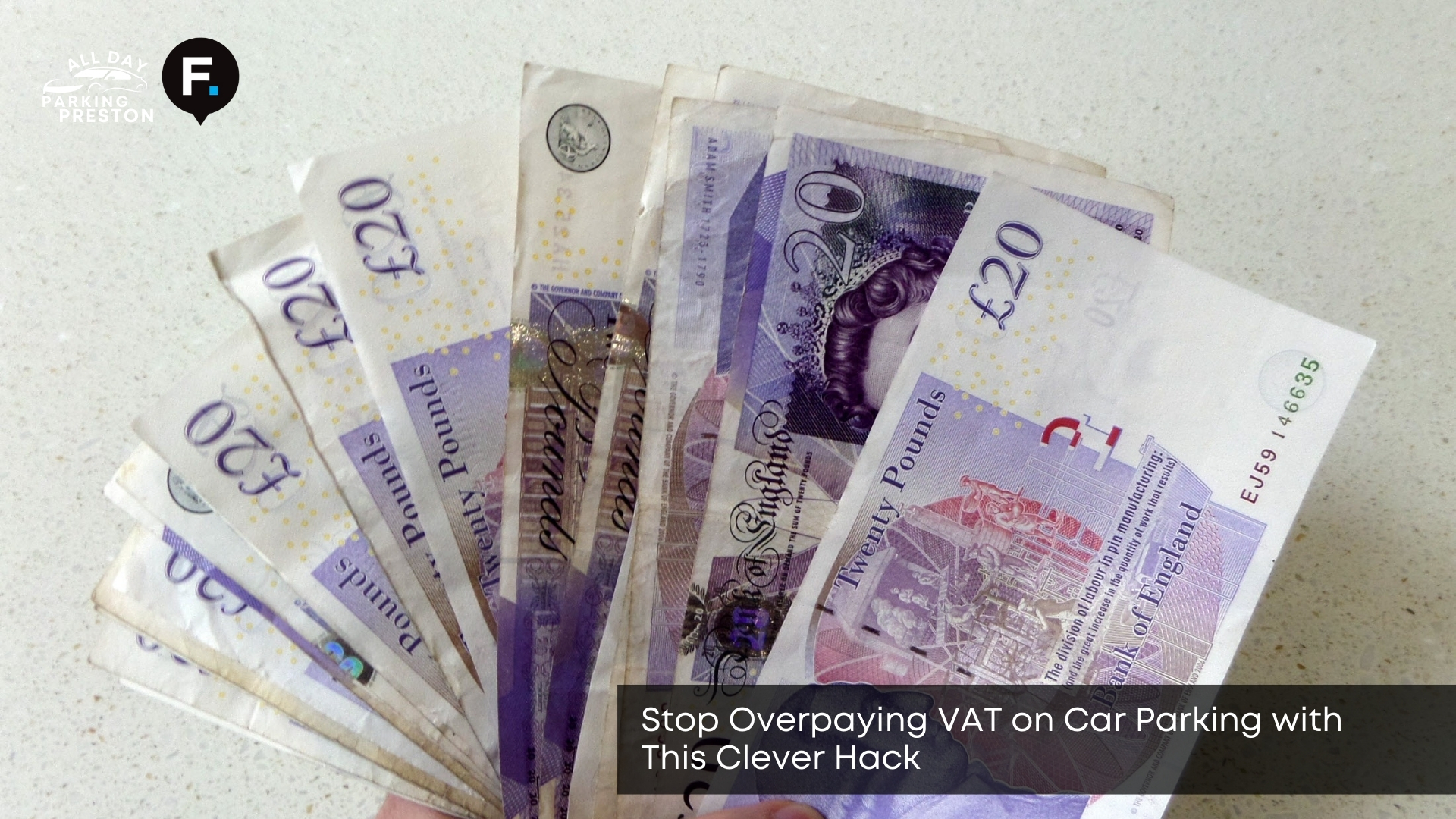If you’ve ever paid for car parking and felt like it cost more than it should, VAT could be part of the reason. Value-Added Tax (VAT) often applies to commercial parking, but not always in ways drivers expect. Many UK motorists pay VAT unnecessarily simply because they are unaware of where it applies. In this article, you’ll learn how to spot when VAT is charged and how a clever trick could help you avoid paying more than you need to.
What Is VAT and How Does It Apply to Car Parking?
VAT, or Value Added Tax, is a 20% charge added to most goods and services in the UK, including many car parking facilities. Commercial car parks, such as those operated by private companies or shopping centres, typically include VAT in their prices. This means that a portion of your fee is tax, even if it’s not always clearly shown on the receipt. Understanding this helps you work out when you’re being taxed and when you’re not.
Are All Car Parks Subject to VAT Charges?
No, not all car parks are subject to VAT charges because some are legally exempt. Council-operated car parks, for example, do not charge VAT because local authorities are not considered businesses under tax rules. This means a £5 payment to a council-run facility covers parking only, not tax. However, if a private operator charges the same amount, VAT may be included. This difference can have a real impact on your regular parking costs.
How Can You Tell If You’re Paying VAT on Parking?
You can tell if you’re paying VAT on parking by checking your receipt or payment details. A clear sign is if the ticket or invoice displays a VAT number or a line item stating ‘VAT included’. Some apps or machines break it down, but others roll it into the total price with no mention. If you pay by card and receive a digital receipt, look for terms such as “VAT inclusive” or “Tax breakdown.” Being alert to these clues helps you compare prices more accurately.
What’s the Clever Hack to Avoid Overpaying?
The clever hack to avoid overpaying is to use council car parks, which don’t charge VAT, instead of private ones nearby. In many town centres, public car parks are just a short walk away from higher-priced, VAT-included options. Choosing a council facility could save you 20 per cent instantly without changing your routine if you’re using a parking app, filter for local authority car parks to get the best value. Small location changes can lead to big savings over time.
Can You Claim VAT Back on Business Parking?
Yes, you can claim VAT back on business parking if your company is VAT-registered and the car park charges VAT. You’ll need a VAT receipt showing the tax amount and provider details. This applies to client visits, travel to meetings, or trade show parking. Please note that council parking is exempt, so no VAT is applicable in this case. Knowing which car parks allow VAT claims helps you manage business expenses more efficiently.
Are Council Car Parks VAT-Exempt?
Yes, council car parks are VAT-exempt because local authorities are not classed as VAT-registered suppliers for parking. This means what you pay is the final amount, with no tax portion added. It’s a legal distinction that gives councils an advantage in offering cheaper rates. When choosing between public and private options, that exemption could tip the balance in favour of the council space nearby. It’s a small detail with a big effect on your pocket.
What Mistakes Lead Drivers to Pay More Than They Should?
Common mistakes include assuming all car park prices are equal, ignoring signage, and skipping receipt checks. Many drivers default to the closest or shiniest car park without checking if VAT applies. Others miss out on expense claims due to lost or unclear tickets. Some pay inflated prices at private lots when cheaper public ones are nearby. Combine that with car park penalty charge advice to avoid unnecessary costs on every front. Avoiding these pitfalls begins with better awareness of how parking fees are structured.
How to Find VAT-Free or Low-VAT Parking Options
To find VAT-free or low-VAT parking options, use council websites, parking comparison apps, or maps showing public car park locations. Apps like Parkopedia and JustPark often clearly label their providers. Look out for keywords like “Local Authority” or “Council-Run” to spot VAT-free sites. Also, check shopping centres or train stations run by the council, as these often have lower fees. Over time, you’ll build a mental map of budget-friendly, tax-free options in your area, including Preston long stay parking where clear pricing and convenience go hand in hand.
What to Keep in Mind for Your Next Parking Payment
For your next parking payment, check who owns the car park, review your receipt, and consider council options first. If you’re parking for work, always collect a VAT invoice where applicable. Consider location and ownership as equally important as price. With this habit, you’ll not only pay less over time but also avoid missing out on claims or overspending without realising. For more local insights, our Preston car parking guide can help you spot value before you even arrive. Knowing the rules gives you the edge before you even park.


Leave a Reply